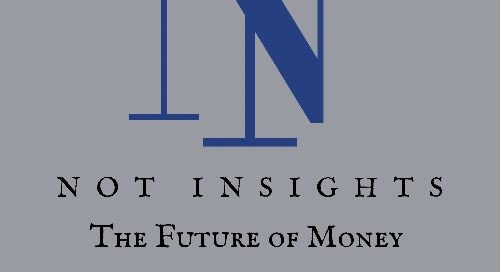money has been a part of human history for about 3,000 years. in the early ages, bartering was used instead of money to buy goods or exchange value. gold and silver have also been forms of money. money, today, can be physical as in coins and notes, or exist as a written or electronic account. however, there’s nothing inherently valuable about paper money or a coin, the only reason they have value is because we’ve all agreed they do.
money has three primary functions. it is a medium of exchange, a unit of account, and a store of value but also, money is about the exchanges and transactions that we have with each other.
there have however been different problems of money that we use today which includes; inflation which decreases the value of money and it’s purchasing power, (controlling) central banks that create infinite supply and inefficient cross-border transactions.
in the past 2 decades we use digital money which allows us to settle a transaction anywhere in the world. this works or sometimes doesn’t due to large institutions. there’s a lot of friction in their system, some cards still don’t work in some places or websites! transferring money across borders and across currencies is really expensive and slow.
cryptocurrency was developed with cryptography which is a clever mathematical way to mask and send information. for a transaction network to succeed, it needs three things; a currency, a trusted ledger, settlement with a high degree of certainty. the blockchain which cryptocurrencies run on, are very reliable because they are a decentralized network of thousands of computers, if one computer is corrupted or damaged, all transactions are still processed and verifiable with other computers in the network.
the advantages of cryptocurrency as money are;
cryptocurrency allows us to send money around the world without changing currency or worrying about the money getting stuck.
small transactions are money-losing on old payments infrastructure but cryptocurrency can handle microtransactions.
unbanked people: There are 2.5 billion people with no access to financial services whatsoever, over the next decade over a billion more people are going to have smartphones which allows them access to this global and open network for value transfer anyone with just a smartphone could participate in.
cryptocurrency can make the expansion of financial access a winning proposition for anyone. but there are arguments against cryptocurrency becoming the future of money. even crypto’s most avid and known supporter, Elon Musk once said “so where I see crypto as respectively is as a replacement for cash but not as being the primary database(for transactions).”
it can also be sidelined due to government regulation. then, there’s issues of scalability and cyber-security.
stable coin acceptance by banks and institutions is a first step towards cryptocurrency as a future of money.
people who are insusceptible to change should know that it’s totally okay for money to change. we went from trade by barter to gold to coins to paper money, nothing wrong with moving to programmable money.
cryptocurrency gives the possibility of a new phase of money; combination of software and currency makes money more than just a static unit of value, and we don’t have to rely on institutions.
when we had physical objects as money, money moved at the speed of humans, with digital money, it moves at the speed of banks and institutions (processors, card issuers, etc). in a world of programmable money, we remove humans and institutions from the loop and money moves with the speed of computers and networks.
P.S. this article was originally written about 5 months ago and totally based on a beginner’s(me) research. i published it here because I wanted to have a precedent for this topic and other articles.
finally, this blog is titled “Not Insights” because I barely do, so if I’ve gotten any facts wrong, don’t hesitate to inform me!
| recommended reading — I feel this article is pretty easy for non-avid crypto enthusiasts.




